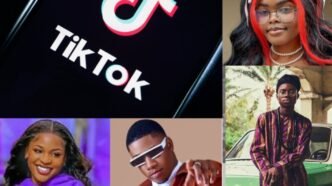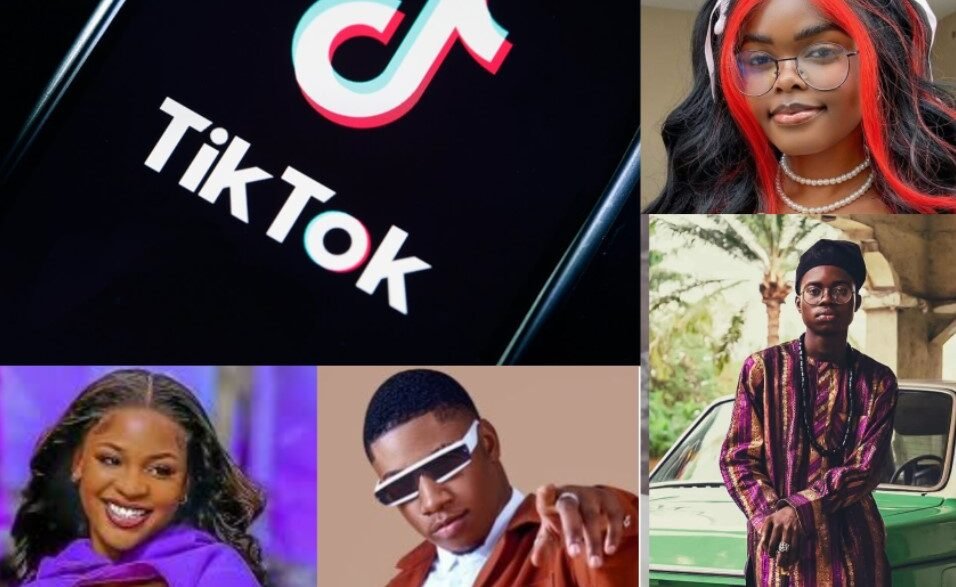ABUJA, Nigeria — October 27, 2025.
The Federal Government is preparing to implement new regulatory measures over the operations and content of the popular social media platform TikTok in Nigeria, as part of efforts to promote skill development, national cohesion, and responsible digital citizenship.
The move, which comes amid growing concerns about the influence of social media on youth behavior and national values, is aimed at redirecting online creativity toward productivity, rather than what officials describe as the “unrestrained entertainment culture” currently dominating the platform.
FG to Enforce New Digital Content Guidelines
According to reliable government sources within the Federal Ministry of Information and National Orientation, discussions are ongoing between the Nigerian government and representatives of TikTok’s regional management to create a framework for content regulation and creator accountability.
The framework will focus on content moderation, ethical standards, and the promotion of educational and skill-based material. Officials say this is part of the broader Renewed Hope Digital Agenda, a policy designed to realign social media activity with Nigeria’s national development goals.
Minister of Information and National Orientation, Mohammed Idris, confirmed that the government is not seeking to ban TikTok but rather to “guide the platform toward national interest.”
“We are not restricting freedom of expression or creativity,” Idris said during a press briefing in Abuja. “We are simply ensuring that digital platforms operating in Nigeria reflect our national values, promote positive engagement, and contribute to skill development and social unity.”
The minister noted that the government’s concerns stem from the increasing spread of misinformation, explicit content, and divisive narratives on the platform, especially among young Nigerians.
Why TikTok Is Under Scrutiny
Since its launch in Nigeria, TikTok has grown into one of the country’s most influential social media platforms, with an estimated 26 million active users. The platform has become a major driver of Nigeria’s creative economy, giving rise to thousands of influencers, comedians, dancers, and marketers who reach millions of followers daily.
However, the government and digital rights advocates have long debated the platform’s role in shaping public behavior and cultural trends. Critics argue that while TikTok offers a stage for creativity, it has also become a source of misinformation, social distraction, and cultural erosion.
“Social media is a double-edged sword,” said Dr. Ibrahim Buba, a communication policy analyst at Bayero University, Kano. “On one hand, it creates opportunities for innovation and digital inclusion. On the other, it amplifies content that can distort national identity, promote negative behavior, or trivialize education.”
The Federal Government’s new initiative, according to insiders, will prioritize educational, cultural, and skill-oriented content, encouraging creators to focus on areas like technology, entrepreneurship, crafts, and civic education.
National Digital Responsibility Framework
The proposed TikTok regulation is part of a larger National Digital Responsibility Framework (NDRF) currently being finalized by the Federal Ministry of Information in collaboration with the National Information Technology Development Agency (NITDA) and the National Broadcasting Commission (NBC).
The framework will introduce content rating systems, accountability rules for creators, and partnerships with social media companies to curb harmful or misleading content.
Government officials said the policy is consistent with international standards for digital safety and aligns with President Bola Tinubu’s Renewed Hope Agenda, which emphasizes digital literacy, innovation, and ethical communication.
“We are not trying to stifle free speech or creativity,” said a senior official in the Ministry. “We are promoting a balance between freedom and responsibility. Every online creator must understand that their content has social and cultural consequences.”
A Shift Toward Skill-Based Content
At the heart of the new policy is a desire to reorient young Nigerians toward productive digital engagement. The government believes TikTok can serve as a platform for skills development, digital education, and entrepreneurship, rather than merely a space for entertainment.
The Ministry of Information plans to collaborate with TikTok’s Africa team to launch initiatives that reward creators producing content on technology, agriculture, education, craftsmanship, and cultural heritage.
Officials say incentives could include sponsorship opportunities, grants, and national recognition for top creators whose content contributes to skill acquisition or civic awareness.
“TikTok has the power to transform lives,” Idris said. “But we want that power to transform Nigeria — to train our youths, to inspire innovation, and to unite our people through creativity with purpose.”
Balancing Regulation and Freedom
The government’s move has sparked mixed reactions among Nigerians. While some welcome the policy as a step toward digital discipline and value-driven media, others see it as a potential threat to freedom of expression and a veiled attempt at censorship.
Maryam Yusuf, a TikTok creator based in Lagos with over 300,000 followers, urged the government to engage creators before implementing any new rules.
“We understand the need for structure, but we must be part of the conversation,” she said. “TikTok has created jobs for many of us. We need policies that support growth, not restrictions that discourage innovation.”
Civil society organizations have also emphasized the need for transparency and inclusivity in the regulatory process. The Digital Rights Lawyers Initiative has called on the government to ensure that any content control framework respects constitutional rights to free expression and access to information.
Global Context: TikTok Regulation Trends
Nigeria’s move follows a growing global trend toward regulating TikTok and other major social media platforms.
- India banned TikTok in 2020 over national security and data privacy concerns.
- The United States has introduced new laws requiring TikTok’s parent company, ByteDance, to divest its American operations.
- European Union countries are enforcing strict rules under the Digital Services Act (DSA) to promote transparency and accountability among online platforms.
Nigeria’s approach, however, appears softer and more strategic, focusing on content moderation and youth development rather than data control.
“Our goal is not restriction but redirection,” Minister Idris reiterated. “We want Nigerian TikTok to reflect Nigerian values — creativity, resilience, unity, and purpose.”
Impact on Nigeria’s Creative Economy
The Nigerian creative industry, valued at over $8 billion, owes much of its growth to social media platforms like TikTok, Instagram, and YouTube.
Analysts warn that overregulation could discourage investment and stifle the organic creativity that drives Nigeria’s global cultural presence, particularly in music, comedy, and fashion.
However, experts also note that structured regulation could protect creators from exploitation, improve content quality, and encourage responsible influence among online personalities.
“Regulation is not the enemy,” said Dr. Ifeoma Nnaji, a lecturer in media law at the University of Lagos. “When done inclusively, it can elevate standards and promote accountability. The key is transparency and dialogue.”
Next Steps and Stakeholder Engagement
The Ministry of Information and NITDA are expected to convene a national stakeholder forum in November 2025, bringing together influencers, tech experts, policymakers, and civil society leaders to fine-tune the regulation framework.
The government is also developing digital literacy programs to educate youths on safe and productive use of social media platforms.
The proposed measures will be integrated into Nigeria’s Digital Economy Masterplan, which aims to create one million digital jobs by 2030 through training, innovation hubs, and partnerships with global tech firms.
Conclusion
The Federal Government’s move to regulate TikTok content represents a defining moment in Nigeria’s evolving relationship with digital media. While concerns remain about potential overreach, the initiative reflects a broader national effort to transform social media into a tool for empowerment, unity, and progress.
If successfully implemented, the framework could redefine Nigeria’s digital space — shifting TikTok’s focus from fleeting entertainment to meaningful engagement and practical skills development.
As debates continue, one thing is certain: TikTok in Nigeria is changing, and the era of unregulated viral content is giving way to a new chapter of digital responsibility under the Renewed Hope Agenda.














